This guide aims to answer some key questions about making funeral or cremation arrangements in Indiana. We provide an overview of some legal aspects of making funeral plans specific to Indiana funeral laws and what funeral or cremation costs to expect.
With the average traditional funeral in Indiana costing between $7,000 and $10,000, and that’s before a cemetery plot and grave marker are added to the total bill, it’s not hard to see why more and more families in Indiana are considering cremation as an alternative.
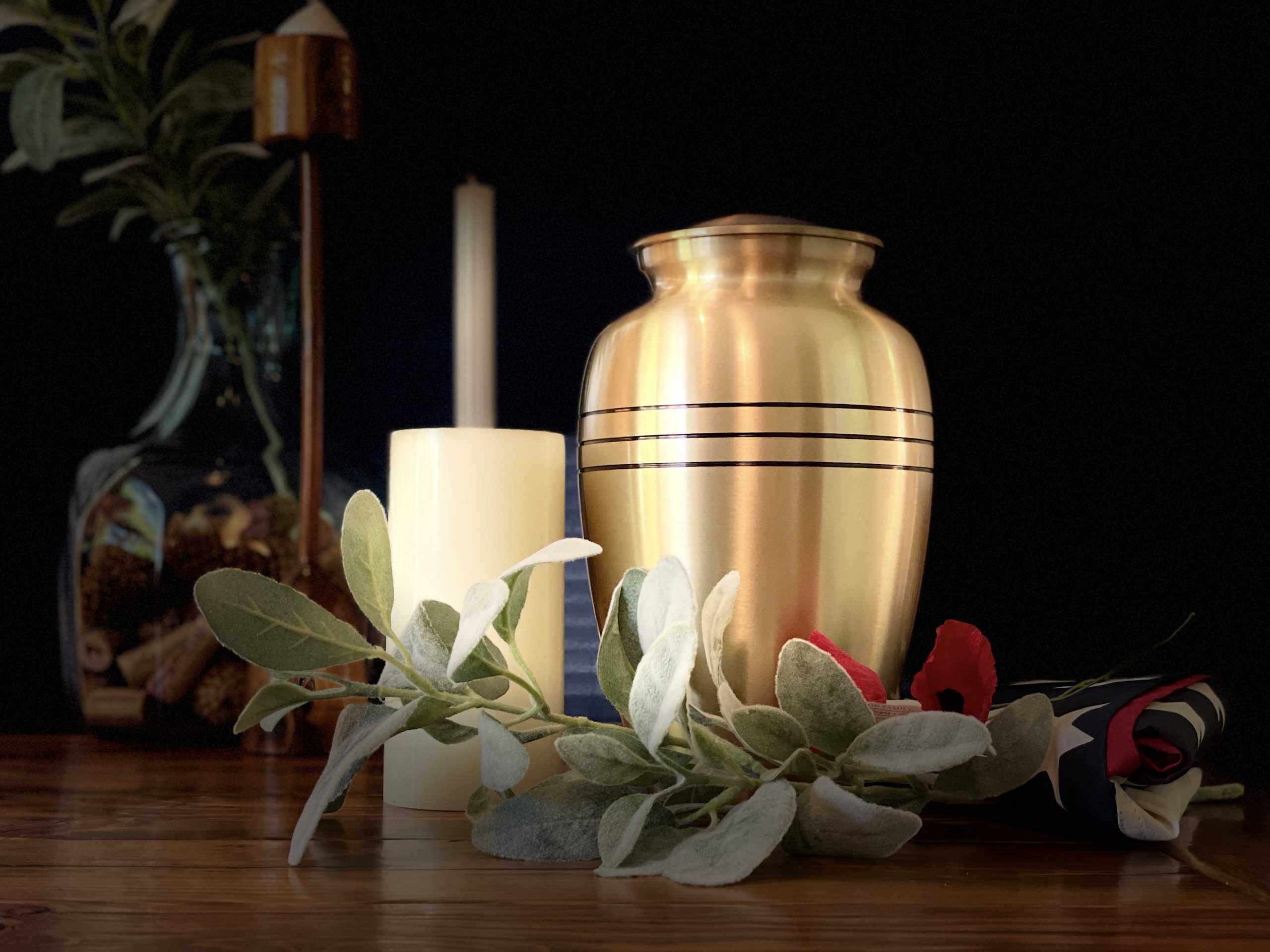
More Families are now Choosing Cremation Services in Indiana.
Cremation is a significantly less expensive funeral option, and it also allows families much more flexibility in planning a memorial service. Unlike a traditional funeral burial, where everything must be planned and arranged quickly, a cremation can happen immediately after the death. But, a service does not have to go ahead immediately.
Direct Cremation is the least expensive type of cremation. However, you may find some funeral homes reluctant to discuss this as an option, and often, the funeral directors will want to discuss other products and services available, such as extras. With a direct cremation, the funeral director chosen is responsible for:
- collecting the body from the place of death
- storage of the deceased before the cremation
- filing the legal paperwork
- taking the body to the crematory for cremation
- returning the ashes to family or next of kin
How do you choose which funeral home or cremation provider suits your needs?
This is the first task you are faced with, whether you are making arrangements as soon as you need them or planning ahead. It can be difficult to know where to start. It is important to ensure you get a funeral provider who is right for your needs and not be swayed by what other people think is right for you.
Listen to recommendations from family and friends, by all means, but it is also wise to conduct your own research or inquiries.
Below is a guide to affordable cremation costs by city in Indiana. This should help you to understand what to expect when checking cremation prices.
| CITY | AVERAGE PRICE | BEST PRICE (DFS) | CALL NOW - DFS |
|---|---|---|---|
| Anderson | $2,384 | $850 | (317) 207-6929 |
| Bloomington | $2,131 | $950 | (812) 213-2009 |
| Carmel | $3,155 | $900 | (317) 207-6929 |
| Evansville | $2,525 | $1,175 | (812) 213-2009 |
| Fishers | $3,000 | $900 | (317) 207-6929 |
| Fort Wayne | $2,311 | $1,175 | (260) 366-6686 |
| Gary | $1,550 | $1,175 | (219) 200-0123 |
| Hammond | $2,418 | $1,175 | (219) 200-0123 |
| Indianapolis | $2,261 | $850 | (317) 207-6929 |
| South Bend | $1,848 | $1,175 | (574) 208-1280 |
What you want regarding funeral service can dictate what kind of funeral provider you need.
Are you looking for traditional services? Do you require a religious service? Do you plan on having many guests and require space at the funeral home? Or are you looking for a simple funeral? Are you considering cremation? Are you working on a budget for funeral expenses?
All these questions and more can help you narrow down and focus on what services a provider offers and how they best suit your needs. These days, cost is the most significant determining factor for many families when looking for a funeral or cremation service provider.
The Indiana State Board of Funeral and Cemetery Service is the governmental agency that regulates funeral homes, funeral directors, and cemetery practices in Indiana. All funeral businesses should be licensed operators.
How do I find a funeral home or cremation provider in Indiana?
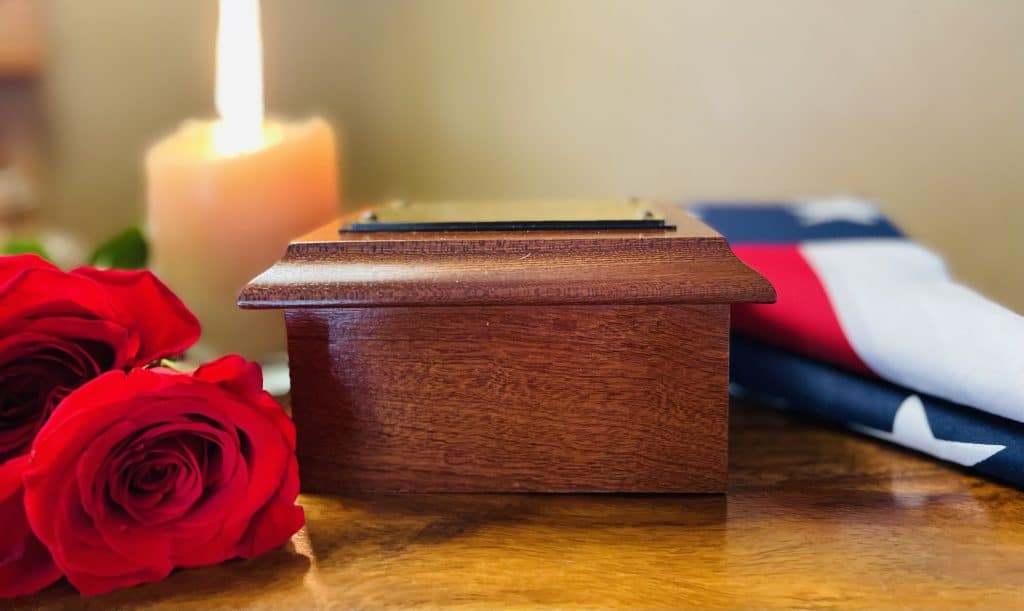
You can use our funeral home directory, or if you are particularly concerned about funeral costs and are specifically seeking your lowest-cost option for a funeral, visit DFS Memorials to find your nearest low-cost cremation provider in Indiana.
Do you want a burial or cremation in Indiana?
As mentioned above, this decision alone can affect how you start to make arrangements. Whether you elect for burial or cremation is an entirely personal choice. The deceased may have expressed a preference, or you may have to decide as next-of-kin based on not only the deceased’s wishes but also the available finances.
According to Indiana law, an “authorizing agent” is the person responsible for making disposition arrangements. In priority order, this is either an individual who possesses a health care power of attorney, a spouse, children, parents, or an individual in the next degree of kinship.
If a spouse was separated or petitioning for divorce, he/she can no longer act as an authorizing agent. If there is no surviving family, a public administrator, a state-appointed guardian, or the coroner becomes the authorizing agent. If both parents survive the deceased, either parent may act as the authorizing agent unless a written objection to cremation is received from the other parent.
Burial is still a common preference in Indiana. However, the cremation rate is increasing in Indiana, as it is across the U.S. A cremation can be much cheaper than burial because items such as a casket, burial vault, cemetery plot, and grave marker are not required.
A funeral service can still be conducted if required, and then the body is cremated rather than buried. A direct cremation is when the deceased is collected and taken directly to be cremated without a service.
In Indiana, there is a 48-hour waiting period between the time of death and when a body can be cremated. No embalming is required, and no storage fee should be charged for this period.
What is the cost of a funeral in Indiana?
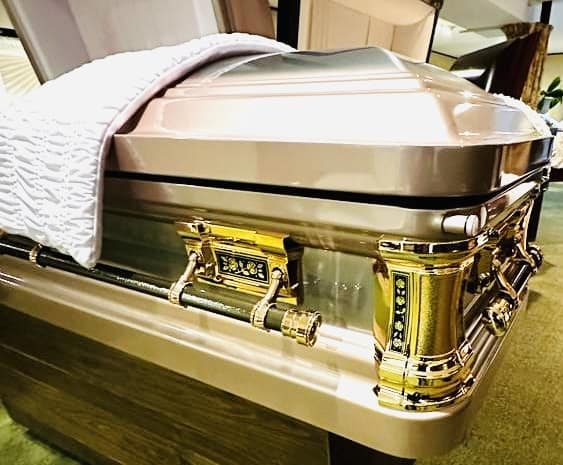
This is the main question that many turn to online sources to find out. Unfortunately, so many funeral home websites do not disclose clear pricing. In fact, you can even call funeral homes for prices and still find you are none the wiser!
There is no simple answer. Funeral costs can vary significantly between funeral providers and even within the same area. Insist on price information. If you inquire, they must provide you with a General Price List (GPL). Before you sign any contract, clearly check all itemized selections.
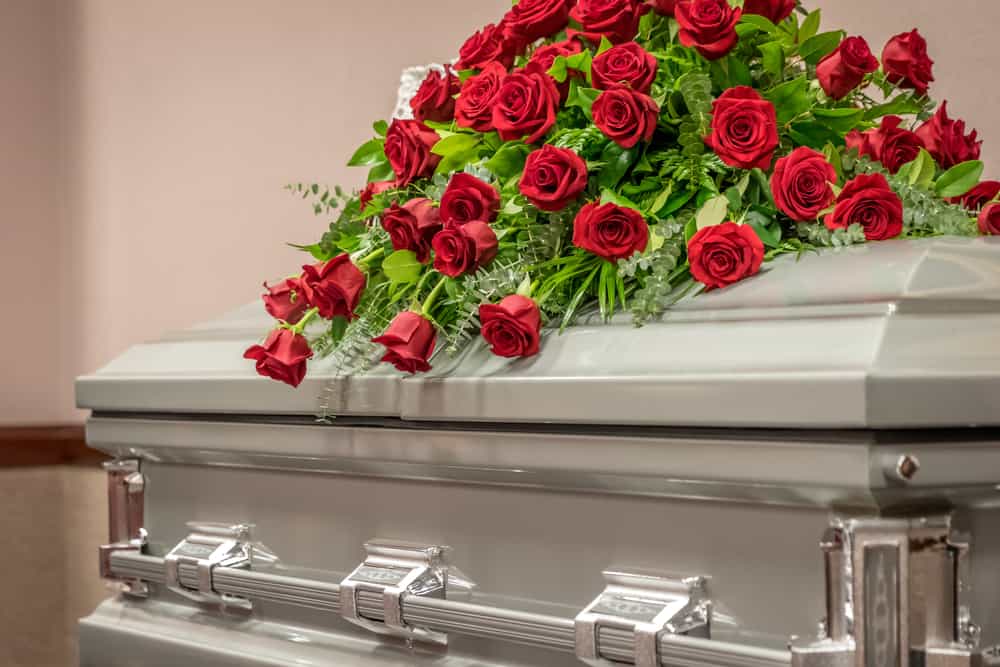
The National Funeral Directors Association surveyed the average funeral cost at $7,848 (NFDA), but this does not include any cemetery costs. So, the total cost of a traditional funeral will likely be nearly $10,000.
Of course, it is possible to arrange a funeral for less than this if you select a funeral services provider offering a fixed-cost funeral package or try to reduce the ancillary items and services associated with a funeral.
Cash advances are items you need to pay the funeral director up front. They are usually services or products that the funeral home purchases on your behalf from a third party.
How much does a cremation cost in Indiana?

Similarly to burial, the cost of cremation in Indiana can vary depending on which cremation services provider you contact and what type of cremation service you select.
A basic cremation (direct cremation) can cost anywhere between $850 and $3,000. Low-cost direct cremations are available from a number of providers.
The DFS Memorials providers in Indiana all offer the best value direct cremation prices in their area. A cremation with a service typically costs between $1,500 and $4,000. This can depend upon the type of service you opt for and whether you purchase or rent a casket.
Understanding cremation laws in Indiana – What you need to know to arrange a cremation
The Indiana State Board of Funeral & Cemetery Service is responsible for licensing funeral homes and crematories in Indiana and governs the practice of cremating human remains. Certain requirements must be met before a cremation can proceed.
The legal next of kin must sign a Cremation Authorization Form. Once the cremation is correctly authorized, the funeral director can obtain the permit. In many states, there is a mandatory legal waiting period before the cremation can occur, but no such rule is in place in Indiana.

That being said, it generally takes 48 hours to get all the legal paperwork in order and the permit to cremate authorized. No casket is legally required for cremation, but a rigid combustible container must be used. This container is generally referred to as the “cremation container,” and it is a reinforced cardboard box.
To learn more about cremation services, the cremation process, secure ID tracking, cremation regulations, and laws, visit our Ultimate Guide to Cremation.
Is embalming required in Indiana?
No, embalming is not required by law in Indiana. Embalming does not prevent a body from undergoing the natural decomposition process. Your funeral director may suggest embalming if there is likely to be a delay before the funeral can be conducted.
Or if a viewing or open casket service is requested for health, safety, and hygiene reasons. However, this should be a personal decision and do not feel pressured to have your loved one embalmed if you do not wish to.
What are burial and cemetery plot requirements in Indiana?
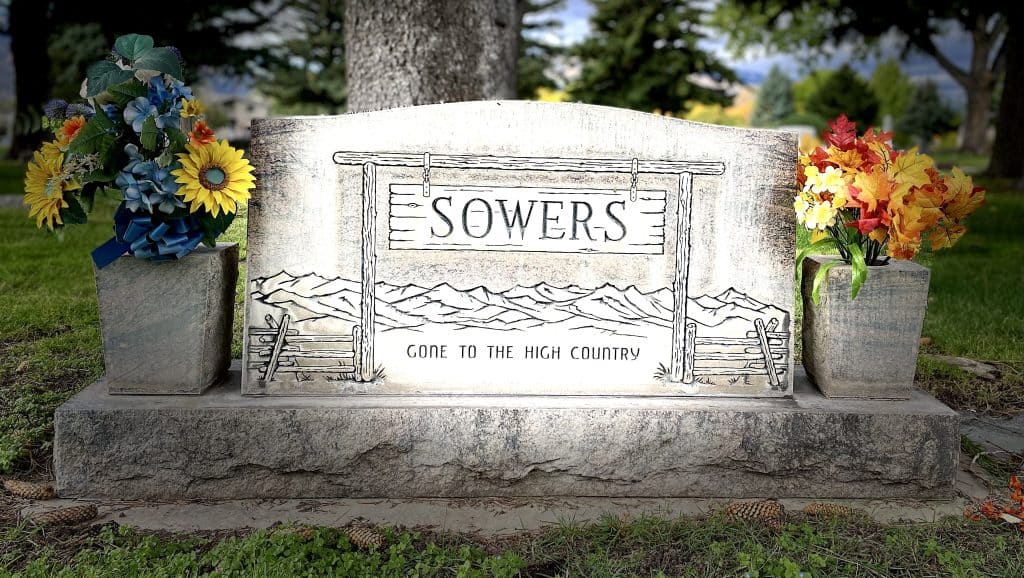
Requirements vary depending on the cemetery you select. As mentioned below, no legal regulation enforces the use of a casket. However, cemetery regulations do usually require some rigid container. Many cemeteries also require a vault or grave liner to help prevent ground settlement and avoid the contamination of the water table from embalming chemicals.
Can I pre-plan a funeral or cremation? How does Indiana state law govern preneed plans?
Yes, you can pre-plan a funeral or cremation in Indiana. This is most commonly referred to as “preneed.” In Indiana, preneed contracts can be sold by an agent with a certificate of authority who is appropriately licensed to sell funeral contracts.
There are three funding methods – trust funds, escrow accounts, and insurance policies. Purchasing a preneed contract directly from a funeral home will most likely be funded by a trust fund or escrow account. If you buy a plan from an insurance agent, you take out a burial insurance policy.
Pre-planning is an excellent idea. It can save surviving families emotional and financial distress when a death occurs. Aside from preneed funeral contracts with certified agents, it is becoming more common these days for individuals to outline their personal funeral plans and put aside the necessary funds to cover their needs.

Funds can be laid away in a payable-on-death account (POD), a Totten Trust. If a family member dies, they are named as the beneficiary, and they can withdraw the funds for funeral expenses. A Totten trust does not have to go through probate.
To learn more about making a funeral or cremation plan by setting up a P.O.D. account, visit our article on How to Safely Put Money Aside for a Funeral Plan.
What are my options for purchasing a casket or alternative container?
There is no legal requirement in Indiana that a body must be buried in a casket. State law specifies that a “rigid container” is required and defines a “casket” as a rigid enclosure that:
1) is made of wood, metal, or other material;
2) is ornamented;
3) has a fixed or non-fixed inner lining; and
4) is designed to encase human remains.
For cremation, an “alternative container” is required that is a rigid or non-rigid enclosure. It must be made of non-metallic material, have no ornamentation, be resistant to leakage, and be rigid enough to handle while protecting crematory personnel. These days, a cardboard container is ordinarily used.
Indiana state law is in line with federal legislation according to the FTC’s ‘funeral rule,’ You have the right to purchase a casket from a third-party casket seller. This may be a retail outlet or an online distributor. Your funeral home MUST accept your casket and cannot add a surcharge for handling. The rule was brought about partly in response to how funeral homes marked up caskets by up to 500%. If you purchase a casket from a third-party casket retailer – just ensure you are dealing with a reputable supplier.
Abbey Caskets is based in Indiana, and the monks of Saint Meinrad Archabbey make quality wooden coffins that start at around $1,900. They operate a program where customers can pre-purchase their casket in advance to secure today’s prices. Indiana is also home to Batesville Caskets.
Remember that a cemetery may have specific requirements regarding sizes and containment for burial plots and vaults, so it is wise to check with your cemetery before purchasing a casket.
What are the laws for scattering ashes in Indiana?
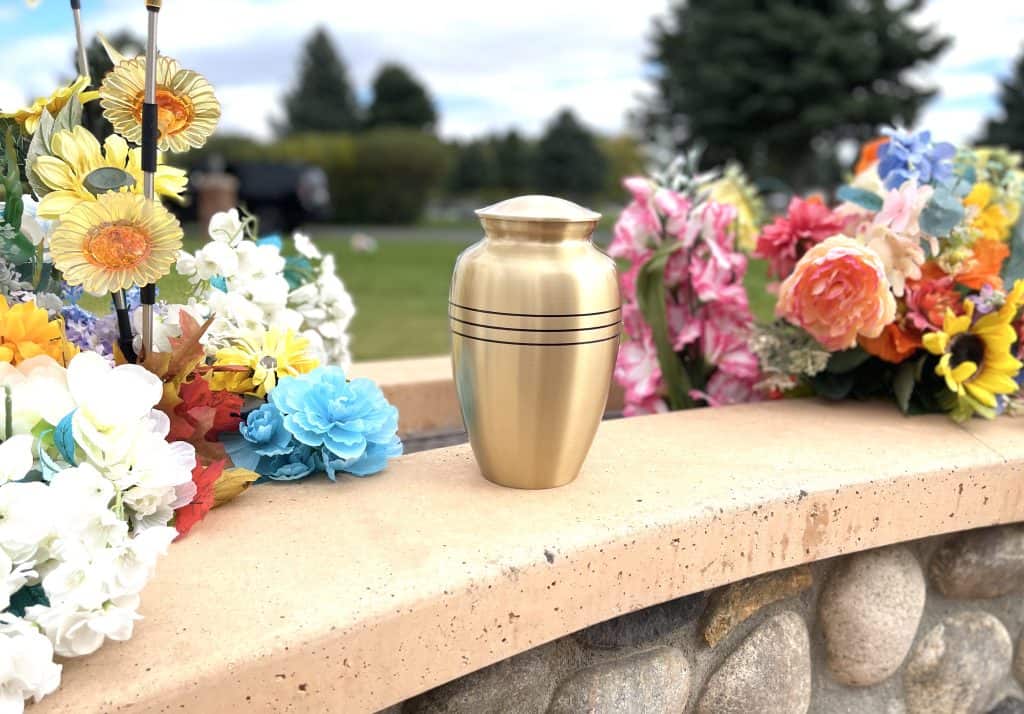
Indiana law states that cremated remains may be kept by the person who has legal control over the remains (or the authorizing agent) or disposed of in any of the following ways:
- By placing cremated remains in a grave, niche, or mausoleum
- By scattering the remains in a designated scattering area or memorial garden
- By scattering remains on any private land with the consent of the landowner
- By scattering the remains on any uninhabited public land or waterway
State legislation states that the Department of Health should document records of the date, manner, and location of the property where remains are disposed of on private property. Commingling of cremated remains is only allowed with the permission of the authorizing agent.
Ashes may be scattered by air or on inland water. Indiana’s northern point is Lake Michigan, and the Clean Water Act from the Environmental Protection Agency (EPA) regulates scattering in inland water.
As cremated remains are not considered a pollutant, there is no specific legislation against them being dispersed in the lake, so long as the ashes are dispersed into the water or a biodegradable urn/scattering tube is used. Make sure any petals or flowers, or wreaths that are used are also fully degradable with no plastic or metal ties. Indiana is within Region 5 of the EPA, and its main contact number is (312) 353-2000.
What help is available with funeral expenses in Indiana?

You can explore various sources and options for help with funeral expenses in Indiana. The Indiana government can provide state burial assistance under the Temporary Assistance for Needy Families (TANF) fund. A burial claim needs to be made to the local office of the Division of Family and Children, and if qualifying, a state reimbursement is up to 60% of the amount expended. Beneficiaries of Medicaid Aged, Blind, or Disabled benefits are entitled to 100% funded burial assistance.
When seeking state aid with funeral expenses in Indiana, the amount awarded may also be determined by the amount contributed to funeral costs by relatives and friends. The amount of $750 is exempt from inclusion in the calculation of what burial assistance award will be paid out. If an amount exceeding $750 but less than $1350 is collected, then $600 is payable from state funds.
This amount is calculated on a dollar-for-dollar amount for fees in excess of $750. In addition to this, up to $400 can be claimed for cemetery expenses.
To find out more about the burial assistance program in Indiana and to check current rates, visit Indiana Gov FSSA Burial Program Information online.
Veteran benefits can also help with the costs of a funeral for a veteran or a veteran’s spouse.
Read more in our section on Military Funerals, or contact your local VA to find out more details.
Are whole-body donations permitted in Indiana?
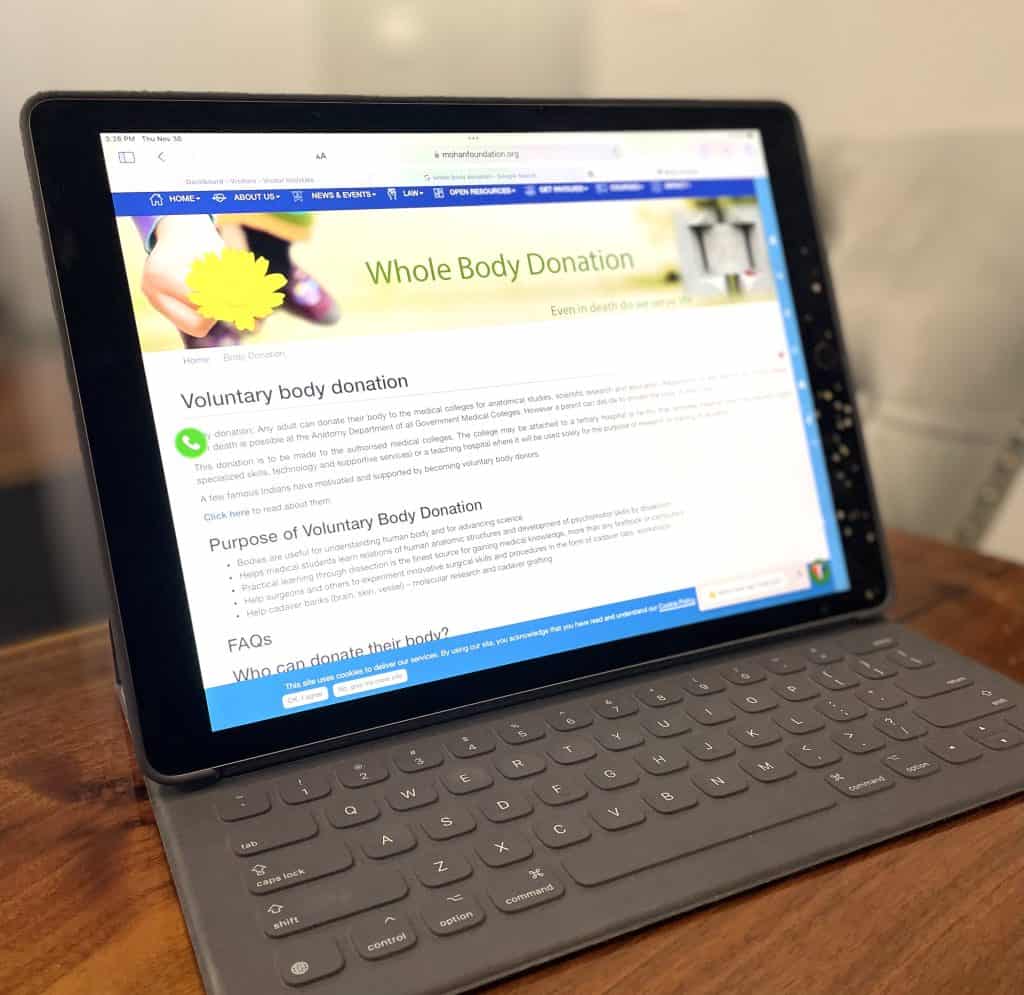
Yes, you can donate your body to science upon your death if you so wish. Within Indiana, you can approach the Indiana State Anatomical Board Education Program.
Indiana University School of Medicine
Department of Anatomy & Cell Biology
635 Barnhill Drive
VanNuys Medical Science Building
Indianapolis, Indiana 46202
What do you do if your loved one dies away from Indiana?
Tragically, this is happening more often as we become a more mobile society. If your loved one has died while away from home, you can either have their body shipped back to Indiana or have a cremation at the place of death and have the ashes shipped back. To have cremated remains shipped is a much cheaper option.
To learn more about funeral shipping, read our section on What to do when a loved one dies away from home.
If you do travel regularly for work, pleasure, sport, visiting family, or snow-birding, you may wish to consider our great value Travel Protection Plan. This plan costs just $450 for an individual for lifetime protection against the costly expense of returning a body home if a death occurs 75 miles (or further) from your residence. It also provides global coverage. Domestic funeral shipping can cost from $3,000, and International repatriation can start at around $6,900.
Where do I get a copy of a death certificate in Indiana?
A certified copy of a death certificate is available from the Indiana State Department of Health (ISDH) by mail or online. To collect a certified copy of a death certificate in person, you need to visit the local health department of the county where the death occurred. A copy of a death certificate in Indiana ranges from $5.00 – $15.00, depending upon which county the death was registered.
What should you do if you have a complaint about funeral services or products you have purchased?
Suppose you have a complaint or grievance about funeral or cremation services or products purchased from a licensed funeral business in Indiana. In that case, you can write a complaint to the State Board of Funeral Directors. They will investigate your complaint and take action as appropriate.
State Board of Funeral and Cemetery Service
402 W. Washington Street, Room W072,
Indianapolis, IN 46204
Resources:
DFS Memorials – Save on Cremation Costs in Indiana
Funeral Homes in Indiana


